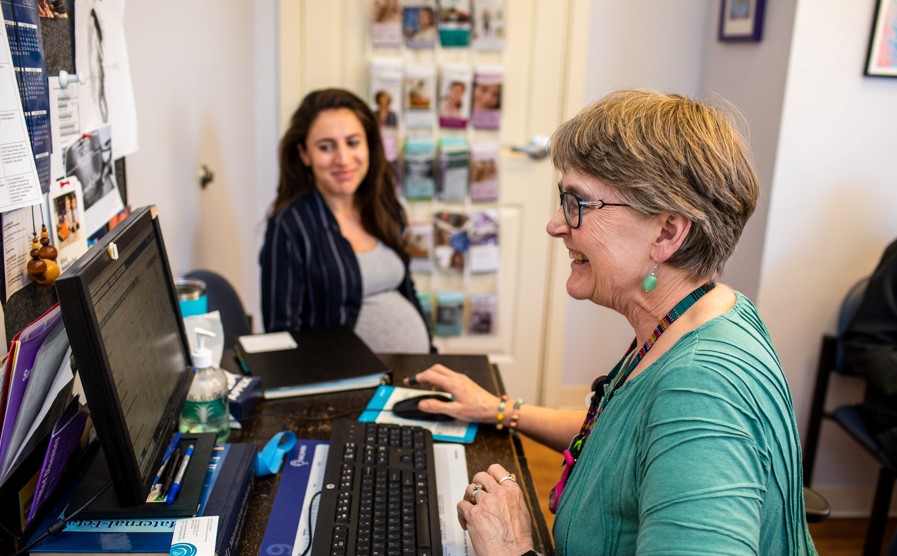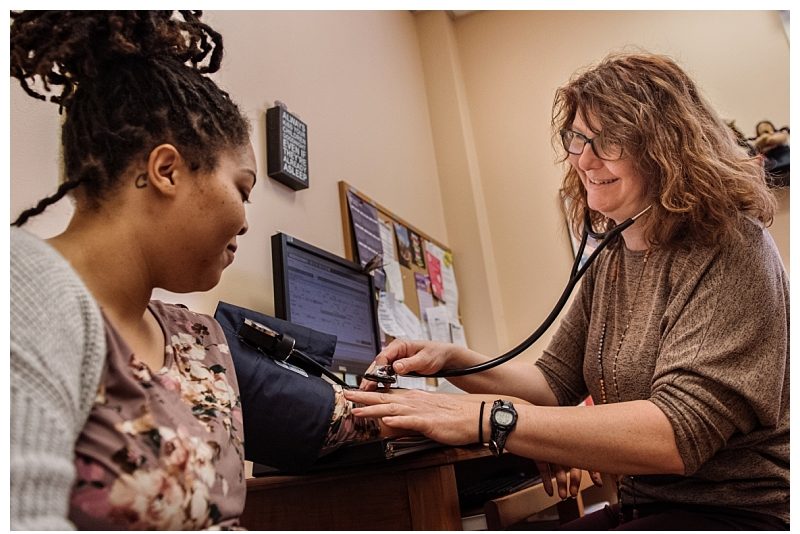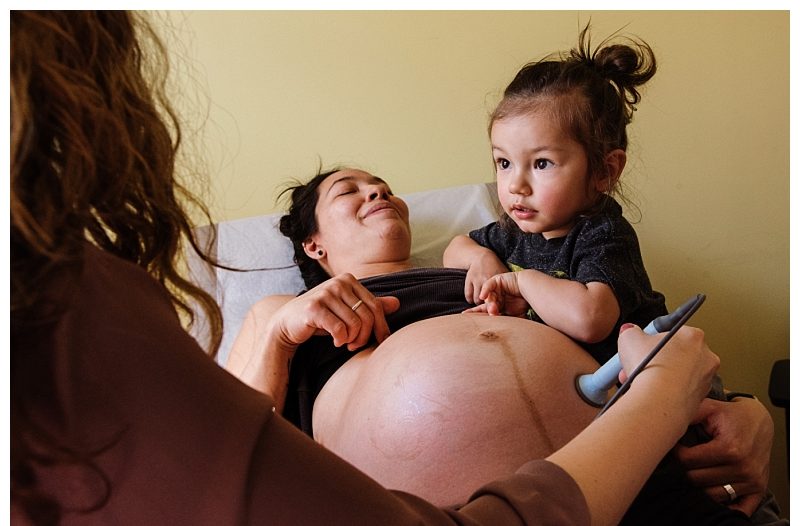Lifecycle WomanCare Adapts to Meet the Challenges of COVID-19
From prenatal care to menopause, Lifecycle WomanCare finds new ways to support clients during coronavirus.

So much has changed or been put on hold due to the COVID-19 crisis, but as we are taking care of our families in new ways, it is so important to remember to take care of ourselves. While the world has been thrown into upheaval, our physical and mental well-being can often be thrown, as well. As parents we often find it hard to prioritize our own needs, but in times like these with so many changes, demands, and difficult questions, it is more critical than ever.
“I’ve never seen so many clear examples of how the psyche affects the body. When you’re psychologically stressed, everything starts to go awry,” describes Julie Cristol, Clinical Director at Lifecycle WomanCare. “If you’re already dealing with the life change of going through menopause or are postpartum, the social isolation is very difficult.”
Though these days bring more uncertainty for everyone, Lifecycle WomanCare has been helping their clients handle life’s changes with grace and expertise for over 40 years. Originally called The Birth Center, they renamed themselves Lifecycle WomanCare to reflect the full spectrum of care they provide. Many of their clients come for gynecological care in addition to birth care. They opened a popular satellite office in South Philadelphia in July 2017, making care more accessible to clients who live in the city.
“The difference in coming here,” explains Cristol, “is the time we can spend with people. Instead of being 10 or 15 minutes, visits can be 30 or even 60 minutes, so that gives the providers the time and space to get to know clients.” To complement this personalized approach, LWC also hosts A New Parent Support Group, four breastfeeding support groups, and a wide variety of childbirth and parenting classes and workshops. When the COVID-19 pandemic closed so many practices, this meant an almost overnight shift in how patients could receive care and support. It has been an experience that gives LWC hope and inspiration for the future and potential of care—and human connection. “We’re learning all about telehealth like everyone else,” Cristol tells us.

Photograph by Meg Brock, courtesy of Lifecycle WomanCare.
This method of care has been particularly useful for maintaining patients’ perimenopausal and menopausal health. While LWC has relationships with local hospitals should surgery or other medical interventions become necessary, adjusting to the changes of menopause and perimenopause often have much more to do with counseling, listening, and figuring out how to best implement lifestyle changes. “The exam is a pretty minimal part of it—it’s more about how your life is going,” Cristol says. Before taking the route of hormone replacement therapy, many patients experiencing this life transition want to try more holistic lifestyle adjustments (such as herbal remedies or diet changes), which can take several months to show improvement. During that time, telehealth and phone checkups can help.
As anxiety has risen with worldwide crisis, sleep issues—already quite common in perimenopausal and menopausal visits—have been a widely reported problem amongst patients; and the availability of regular phone checkups for counseling has also helped patients cope.
Meanwhile, new and expectant parents now connect over Zoom to share encouragement, ask questions, and discuss the joys and challenges of life with a newborn in LWC’s support groups. Nikki Graham (doula, childbirth and lactation educator, mom of four, and Programs Coordinator at LWC), and Cara Puff, IBCLC, one of LWC’s lactation experts, provide professional support and guidance virtually, across all the locales where clients live.
While LWC had discussed expanding into online offerings in the past, their in-person classes had been so popular that there was never really the push to explore the option. With things going virtual, they have “upped their game,” says Cristol, who tells us the feedback for the online support groups has been overwhelming. Keeping the human connection and support going throughout this crisis has been vital to those experiencing postpartum depression, or even just the typical stresses of raising a newborn. “So many of the suggestions I’d make to a new parent—like ‘go see family,’ or ‘go to the gym’—are just not available right now,” she relates.
Of course, not everything at LWC can be done virtually, and they have made the necessary changes to make sure patients can continue their care safely. Masks are required, and in-person contact is minimized—for example, patients set appointments over the phone rather than with reception. Previously, prenatal visits seemed to be “the event of the day,” with partners and kids accompanying the patient. While the office was “used to women and babies all over the waiting room,” Cristol describes, visits are now limited to just the patient, and “there are never more than two or three people in the waiting room at a time.” Although support people and older children cannot attend visits in person, virtual participation is encouraged via Facetime.

Photograph by Meg Brock, courtesy of Lifecycle WomanCare.
Clients are permitted to have one healthy partner or support person accompany them during their birth, as well as one healthy doula, if applicable. Both will be screened for symptoms of concern before they are allowed to enter the building, and are required to wear a mask in order to protect everyone.
As we move past the worst of the pandemic, annual gynecological visits are being booked again, as well as visits for long-acting contraceptives, problem gynecological visits, and perimenopausal-menopausal care exams and support.
When we go back to “normal,” LWC now has more tools in their arsenal to reach and help patients. “Some people may not want to come into the office anymore when they learn they can do these things from home,” Cristol says. While these adjustments were challenging at first, Lifecycle WomanCare has never lost sight of their mission of providing exceptional healthcare services for women of all ages, through all stages of life.
Lead photograph by Taproot Photography. The pictures in this article were taken earlier this year, prior to the pandemic. They illustrate LWC’s normal model of personalized care, which is now practiced with face masks and gloves.
Lifecycle WomanCare supports the Main Line Parent Community.






indimedo September 19, 2022
though covid 19 bring many changes and uncertainity for everyone , it has challenges mental and physical health deeply. we have to make adjustment in life cycle which was challenges at first, as parent we often find it hard to prioritize our own needs. lifecylcles women health care did it mission toward providing healthcare services for women of all ages, through all stages of life.
we thank to all showing helping hand during covid 19.